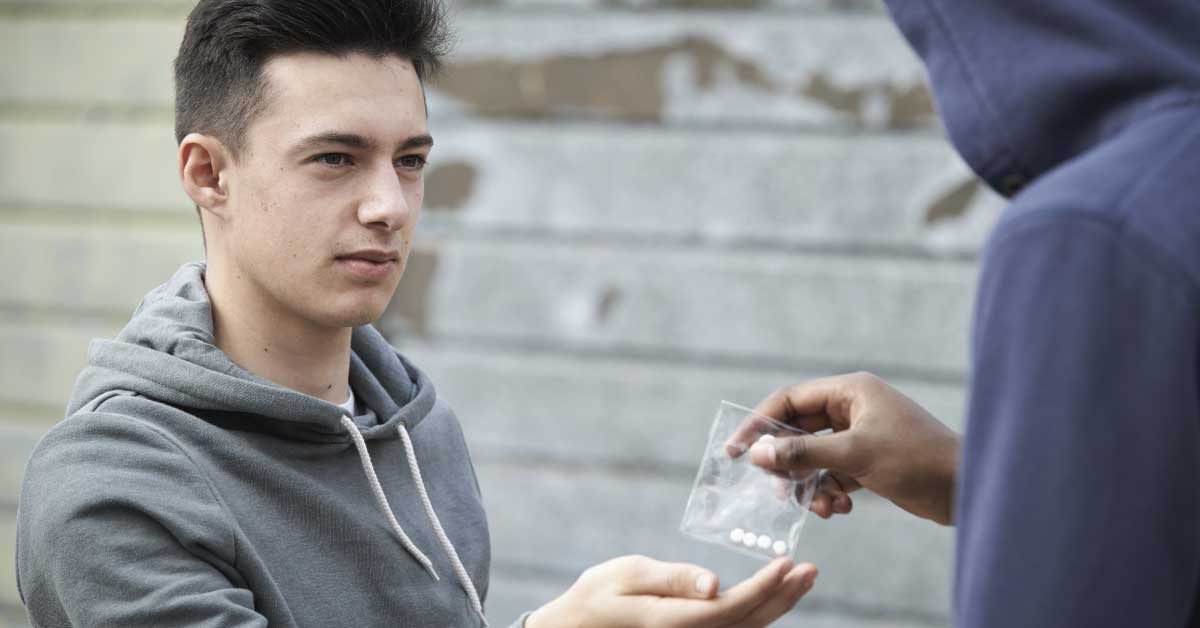Concern is normal
If you are worried about your child or have noticed some changes in their behavior, don’t ignore your intuitive inner voice. Here are some of the main physical and behavioral signs of drug use in teens. With a section for your questions at the end.
Indications of drug use
Teenagers are in a phase of life that normally incorporates mood swings, isolation, secretiveness, changes in behavior, etc. Teens are curious and may be willing to try any substance that comes in their way, especially under pressure from his/her peers. However, as adults, we have to keep an eye out for our kids. And to try to identify and treat drug abuse in its early stages.
The most important thing in detecting the warning signs that a teenager is using drugs is not dismissing them as too general. But, you don’t need to be suspicious all the time, since not every teenager that does display some of these signs and symptoms is a drug user. We hope these serve you as reason to take a look at the bigger picture and start paying more attention.
Stay on the lookout for the following behavioral indications of drug use in teens:
- bloodshot eyes, dilated or constricted pupils
- changes in behavior, being secretive, aggressive, or telling lies
- disrespect for family rules and loss of interest in family activities
- neglected appearance and lack of interest in hygiene, clothing and grooming
- not telling where they are going and not coming home on time
- physical health issues, drastic weight loss or gain
- possession of paraphernalia, such as rolling papers, plastic baggies, tin foil, pipes, etc.
- reduced memory, attention span and lacking energy or motivation
- skipping classes, frequently missing school, or drop in grades
- unexplained spending of money, or money and valuable items missing from home
- unusual odors on body, breath and clothes
- variations in appetite, sudden increase or decrease
- withdrawal from responsibilities and once enjoyable activities
It’s not just booze…
In addition to alcohol, other substances commonly abused by teens include anything that is psychoactive. So, if there are so many, how can you tell which drug your teenager is abusing? While a drug test is certainly the most accurate proof of drug use, check for the following symptoms of these commonly abuse substances:
1. Cannabinoids
Marijuana, hashish and other substances that contain cannabis can be administered by smoking, eating or inhaled as vapor. The use of these substances can produce euphoria, heightened sensory perception, increased blood pressure, pounding heartbeat, red eyes, dry mouth, increased appetite, paranoid thoughts, slowed reaction, and difficulty concentering.
2. Narcotics (Opiates and Opioids)
This class of drugs includes heroin, morphine, codeine, methadone and oxycodone among others. They are naturally derived from opium or synthetically produced. Either way, the signs and symptoms caused by use and dependence on opioids include: euphoria, reduced sense of pain, sedation, slurred speech, memory and attention problems, constricted pupils, confusion, sweaty and clammy skin, needle marks if the drug is injected, runny nose if snorted, etc.
3. Depressants
Barbituates and benzodiazepines such as Amytal, Seconal Sodium, Valium, Xanax, Niravam, Ativan, Klonopin, Librium and others, are CNS depressants. Since they are taken for their relaxing properties, if your teen has recently used any, s/he will probably display the following symptoms: drowsiness, slurred speech, lack of concentration or memory problems, lack of inhibition, slowed respiration, low blood pressure, involuntary eye movements, dizziness, etc.
4. Stimulants
Amphetamines, methamphetamine (meth), cocaine and Ritalin are all drugs used by teens to boost energy, create a high, improve test scores and performance at school or to lose weight. If your adolescent son or daughter has recently used a stimulant drug, you should be able to notice: increased alertness and self-confidence, restlessness, rumbling speech, dilated pupils, hallucinations, mood swings and irritability, nausea and vomiting, heart rate and blood pressure variations, paranoia, insomnia and a “crash” as the effects wear off.
5. Hallucinogens
Depending on which hallucinogenic drug is used, the effects and symptoms also vary. Most commonly used hallucinogens among the teenage population are LSD and PCP. LSD users will have hallucinations, reduced perception of reality, rapid mood swings, high blood pressure and pounding heart, tremors, while PCP produces problems with coordination and movement, aggressive behavior, involuntary eye movements, no sense of pain, problems with speech, over-sensitiveness to noises and lights.
6. Club drugs
Ecstasy or Molly, GHB, roofies, ketamine and other drugs commonly used at parties, concerts, raves and clubs. These are the signs and symptoms that point to the use of club drugs: hallucination, paranoia, dilated pupils, chills and sweating, body tremors, teeth clenching, decreased coordination, memory loss, increased heart rate and blood pressure, reduced inhibitions, etc.
7. Inhalants
The symptoms and signs vary depending on the substance. If you notice your teenager has an inhalant substance in possession without reasonable explanation, this may be a sign of abuse. If you are suspecting inhalant abuse, also look for signs of brief euphoria, decreased inhibition, nausea and vomiting, dizziness, strange odor of inhalant material, slurred speech and slow movements, rashes in the nose and mouth region, etc.
What if my teenage daughter or son is using drugs?
Plan to talk to your child about their drug use, but remain calm, nonjudgmental, and open. Then, offer your support as they take the necessary steps towards recovery and don’t forget that you also need to set some rules. Seek help from a drug counselor or look into a treatment program that will fit your teen’s needs. Finally, don’t get too overwhelmed and preoccupied with your child’s drug problem, that you forget to think about yourself.






0 Comments